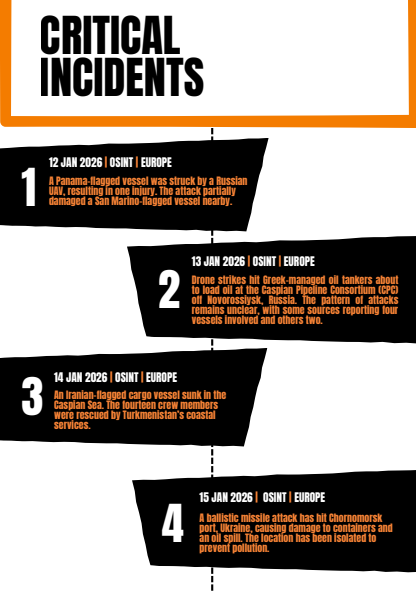From Douala to Danger: The Orange Frost Crew Kidnapped in West African Waters
- Palaemon Maritime
- Jun 5, 2025
- 3 min read
The Orange Frost attack exposes the harsh reality of maritime security failures in the Gulf of Guinea

The Curacao-flagged cargo vessel Orange Frost was boarded on May 30th, 2025, while sailing through the Gulf of Guinea—another stark reminder that traditional maritime security measures are failing when crews need them most.
The attack occurred at 16:14 UTC at coordinates 2°37'35" N, 6°46'47" E, approximately 75 nautical miles northwest of Santo Antonio Port in São Tomé and Príncipe. Despite initial confusion, Nigerian authorities confirmed the incident occurred outside Nigeria's territorial waters, over 400 nautical miles from southeastern Nigeria.
A Routine Voyage Turns Violent
The Orange Frost had departed Douala, Cameroon, the previous day, bound for Matadi, Congo—a routine cargo route through West African ports that thousands of vessels navigate annually. But routine doesn't mean safe in these waters.
Seven armed pirates boarded the vessel using firearms. While most crew members secured themselves in the ship's citadel and monitored the situation via CCTV, two crew members were caught outside this safe haven.
The consequences were immediate and severe: one crew member was injured, and the second—the vessel's Russian second engineer—was abducted. Bloodstains found during inspection told the story of a violent struggle near the attackers' boarding ladder. The bridge sustained damage during the assault.

Emergency Response and Ongoing Crisis
A distress alert to the Maritime Domain Awareness for Trade, Gulf of Guinea (MDAT-GoG) triggered rapid response from local authorities. The Nigerian Navy boarded the ship and confirmed the pirates had fled by May 31st, but the damage was done
The vessel was escorted to a safe port while the Nigerian Maritime Administration and Safety Agency (NIMASA), working with regional partners under the Deep Blue Project, launched their investigation. The search for the abducted crew member continues across the region.
The Bigger Picture: A Pattern of Failure
This marks the second piracy incident in just over a month and the fifth in 2025. While overall Gulf of Guinea piracy incidents have declined, the region remains a hotspot for violent maritime crime—and traditional security measures continue to fail.
The Orange Frost incident exposes a harsh reality: razor wire and conventional hardening methods are inadequate against determined attackers. With a 90% failure rate, razor wire creates a false sense of security, exposing crews to additional risks during installation and removal.
Consider the operational burden: crews spend up to five hours removing razor wire before ship-to-ship transfers, creating extended periods of vulnerability. During these critical moments, vessels are essentially defenseless—exactly when pirates often strike.
Beyond Traditional Failures: A Proven Alternative
The maritime industry needs solutions that actually work. At Palaemon Maritime, our specialised anti-piracy barriers deliver 90% greater effectiveness than traditional razor wire systems, providing robust protection without the operational risks.
Our Hardware-as-a-Service rental model offers:
Long-term service for vessels in high-risk areas over 180 days annually
Short-term coverage for specific voyages (20-90 days)
Flexi-rental for spot market operations with on-hire/off-hire flexibility
Complete Service Integration:
Pre-voyage risk assessments analyzing vessel vulnerabilities
Professional crew training with hands-on instruction and emergency procedures
Full logistics management including customs, loading, and delivery
Ongoing voyage support with installation verification and direct communication
STOP PIRATES
Because your crew's safety cannot depend on methods that fail 90% of the time.
The Orange Frost crew learned this lesson the hard way. Don't let your crew become the next statistic.
Ready to upgrade your maritime security?
Get a free pre-voyage risk assessment and discover why our barriers have never failed to prevent unauthorised boarding.











Comments